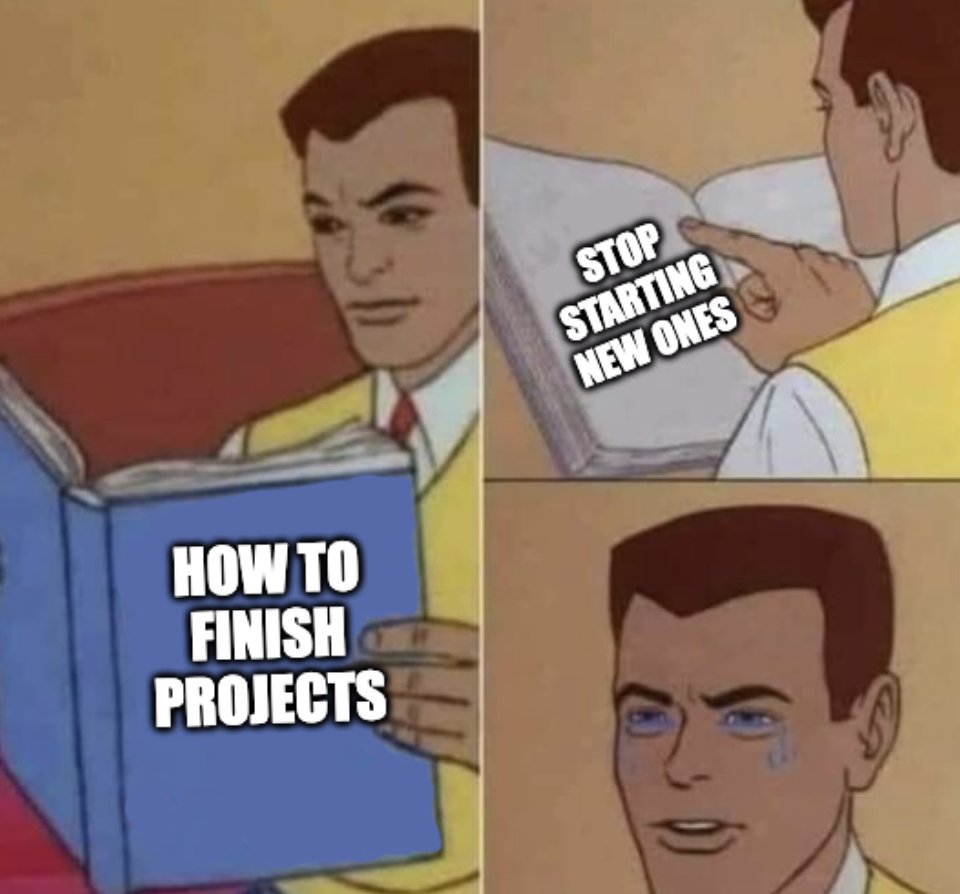10 Reasons Why You Must Build in Public
 Prince Adimado
Prince AdimadoTable of contents
- Introduction
- 10 Reasons Why You Must Build in Public
- 1. Personal Development
- 2. Portfolio Building
- 3. Exploration, Learning and Growth
- 4. Feedback and Collaboration
- 5. Job Prospects
- 6. Accountability
- 7. Visibility of your work
- 8. Thought Leadership
- 9. Community Support
- 10. Personal Branding & Influence
- Conclusion

Introduction
If you have been reading my blog posts, you will know this blog is my first post in 2024.
Instead of writing, I have been focusing more on my YouTube Channel, creating more videos, I believe I had to get a message (my truth) that I could share effortlessly with the world
Let me cut to the chase, for me building in public has contributed massively in my career as a Software Developer even in my days as a CS student, from being a CS student to working professionally as a Software Developer. Everyone is learning technology and building applications here and there but not all beginners or even those who are already in the game building in public.
It may be because some are working on proprietary projects hence, they cannot share. But what has happened to “side projects”?
I once read a post on Quora where one Software Engineer said and I paraphrase, that developers are working on company (proprietary) projects and do not have significant side projects of their own. Which isn’t a good sign for a Software Developer.
Side projects are personal or independent projects that are pursued outside of one’s regular work or academic responsibilities. They are often driven by personal interest, a desire to learn new skills, or to solve a problem.
For me, I believe, as Software Developers we should not only learn from by building company proprietary projects but should do our major learnings in the side projects we build.
In this blog post, I will share 10 reasons why you must build in public. Let’s get into it.
10 Reasons Why You Must Build in Public
1. Personal Development
The number one goal of building in public is to grow in your craft as a Software Developer. By building side projects or collaborating with other developers you get to learn new programming languages, frameworks, or technologies that you might encounter in your day job.
As I said in the introduction, one should translate what you learned in your side project to your job. It makes completing tasks easier and faster, leaving you time to focus on other challenging tasks you may not have encountered. For example, a student solving past questions that may likely appear in the final exams.
2. Portfolio Building
During the days when I was in tutorial hell and had skill issues with HTML and CSS. I saw many developers on LinkedIn and Twitter posting their side projects and even saw one dev updating his portfolio website with his projects. All these posts I saw back then motivated me not to give up but to persist in sitting behind my PC, going in again.

Remember, it’s unethical to use your company’s proprietary project on your portfolio website, hence the need comes for us developers to build more side projects no matter how small they may be currently but in the long run, increase the complexity of these projects. As it will show recruiters your skill level.
3. Exploration, Learning and Growth
Building side projects and making them public will allow you to explore many techniques in Software Development that you may not have the luxury of time to explore in company projects because of time constraints. Remember you learn by doing. You also learn to articulate your thoughts through writing by continuously building and posting.
4. Feedback and Collaboration
I remember one developer sharing his project a couple of years ago, in his project, once a user clicks on the delete button there is no dialog to confirm the deletion of the object, but it deletes automatically.
One tech bro gave him feedback on why a dialog confirmation message is ideal for deleting an object. He would not have received this feedback by just building in silence.
By building in public, you subject yourself to receive constructive criticism or feedback on your post(s) which will help you in your career as a Software Developer.
5. Job Prospects
It is said that recruiters often scout social media platforms for potential candidates. There are more developers now than five years ago. I have been following Danny Thompson, and he often says you must give yourself a fighting chance in this industry. By building in public and using necessary keywords and hashtags you will open yourself up for recruiters to find you.
To conclude this point, I have read on Twitter, how many people got their jobs on LinkedIn. Build projects that when a recruiter sees, they will have no doubts than to call you for an interview. And if you have not yet started, it starts by posting your project(s) no matter how small it is. You absolutely got this. ✊
6. Accountability
I’m currently building a side project, at first, I was building in silence, and I thought to myself, why don’t I share? I have made two posts on LinkedIn and to be frank I can’t stop this project because people in my network on LinkedIn have seen it and I can’t wait to add the necessary features to finish the project and post the demo.
By building in public, you make a public commitment(s) to your project goals which can motivate you to follow through and achieve your targets. You don’t want to have an unfinished project(s) do you?
Then make public commitments in the early days of your journey and look back shortly you will be amazed by the great memories and significant progress you have achieved. You can start by challenging yourself on the #100DaysOfCode streak.
7. Visibility of your work
Once you build in public, you put yourself and your work out there. It may come at a time when you will need users, testers, and even investors for your project(s). Since you’ve gained exposure by building in public, you may get them with ease because you would have gained community support.
8. Thought Leadership
Who thought some content creators in the tech ecosystem would get this kind of following? It all started when they decided to share their insights and knowledge, you can position yourself as a thought leader in your area of expertise.
9. Community Support
Many wouldn’t have made it this far without community support. Yes, they worked for it, but they would not have come this far without them giving themselves a fighting chance in this saturated industry.
10. Personal Branding & Influence
Showcasing your projects and skills helps you establish your brand, making you more recognizable in the tech community. In this world, you must be known for something, what do people in your network know about you?
By building in public, you have the potential to influence the industry and contribute to the discourse on technologies you are passionate about
Conclusion
To conclude, remember consistency is key through the manifestations of all these benefits associated with building in public. Regular updates and engagement will help you build a strong brand and presence on these platforms.
I love it and I desire to get there one day when I see posts of these industry experts with these many years of experience online. I desired to blog on the Microsoft Tech Community Website, and through the building in public, I got to write my first blog on the Microsoft Tech Community website (I shared my story on how I got to blog on the Microsoft Tech Community here).
Let’s learn to utilize our social media account to our benefit knowing very well that posting doesn’t cost any fee. Make great memories along your journey as a Software Developer soon by posting now, how you solved a bug, how you integrated one service and the other, what features you added to your project, etc. Above all be nice and be patient because all good things take time. I always tell myself this, Time Tells Things.
Remember, you absolutely got this.
Subscribe to my newsletter
Read articles from Prince Adimado directly inside your inbox. Subscribe to the newsletter, and don't miss out.
Written by

Prince Adimado
Prince Adimado
Prince Adimado is a Software Developer who loves community. As a Gold MLSA Alumni, he loves to share his knowledge and experience with the community empowering his peers and others to strive for excellence.